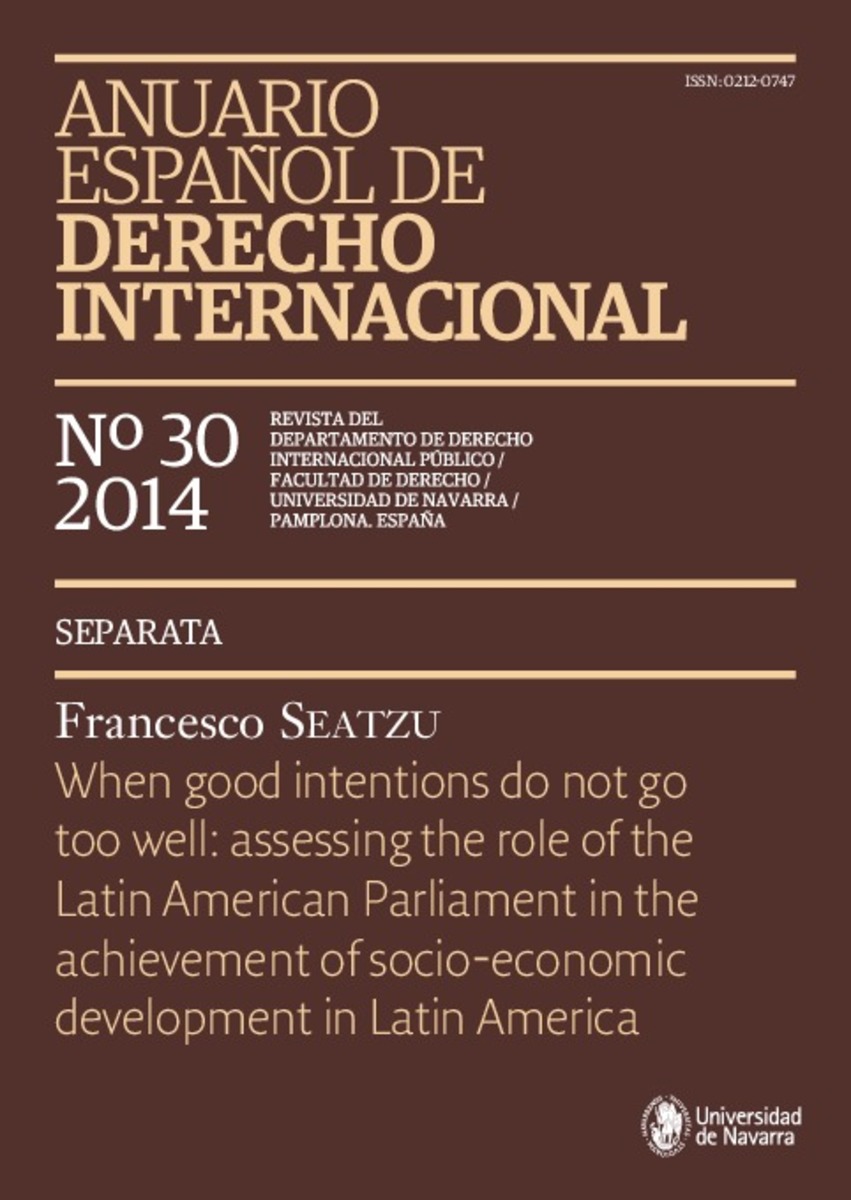When good intentions do not go too well: assessing the role of the Latin American Parliament in the achievement of socioeconomic development in Latin America
Other Titles:
Buenas intenciones, pero no demasiado: evaluación de la función del Parlamento Latinoamericano en el logro del desarrollo socio- económico en América Latina
Keywords:
Materias Investigacion::Derecho
Latin America and Caribbean region
Parlatino
Civil Society
Fundamental Rights and Freedoms
Socioeconomic cooperation
Región de Latinoamérica y el Caribe (LAC)
Parlatino
Sociedad civil
Derechos fundamentales y libertades
Cooperación socio-económica
Publisher:
Servicio de Publicaciones de la Universidad de Navarra
Citation:
Seatzu, F. (Francesco) (2014). “When good intentions do not go too well: assessing the role of the Latin American Parliament in the achievement of socioeconomic development in Latin America"", Anuario de Derecho Internacional, XXX, 479-547.
Statistics and impact
0 citas en

0 citas en

Items in Dadun are protected by copyright, with all rights reserved, unless otherwise indicated.







